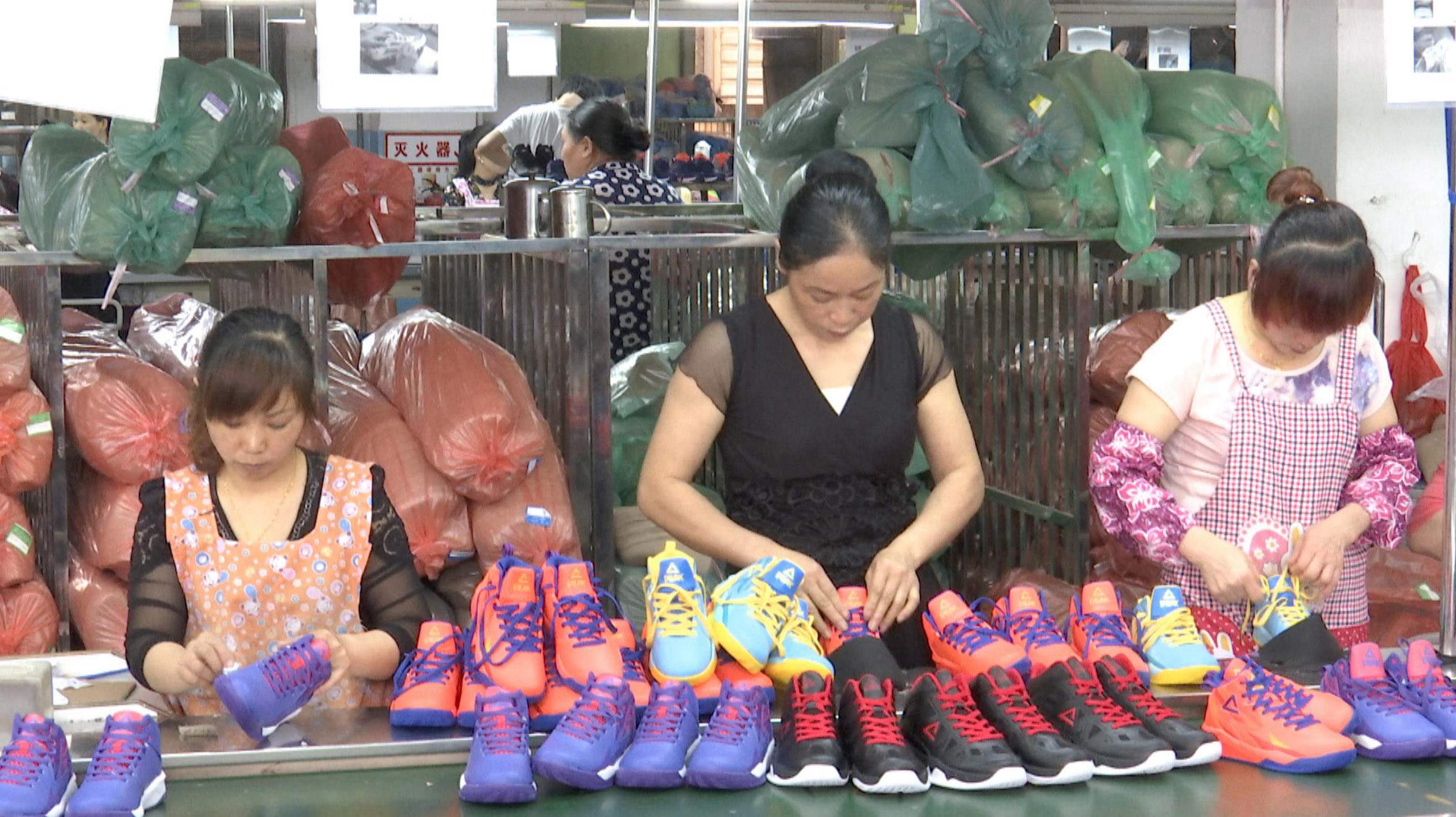By CGTN's Yang Chengxi
The Belt and Road Initiative is a national strategy for China. While it is supported by the public sector and state-owned companies, the country’s private firms are responding to the government strategy by adapting their international development plans to take advantage of the policy.
Sportswear maker Peak owes 23 percent of its sales to international markets. It sponsors world sporting events including the Olympics.
The company’s founder says China’s Belt and Road Initiatives will help its growth in new markets.
“In the age of industrialization, coastal countries have become wealthy since they have better ports. Now with the belt and road initiatives, it’s about time that land-locked economies along the silk road get a chance for better development”, said Xu JIngnan, founder and chairman of the company.

Peak owes 23 percent of its sales to international markets. / CGTN Photo
Peak wants to reach ten billion yuan worth of annual sales across 100 countries in the future. The company is recalibrating its expansion focus since the Belt and Road Initiatives were announced.
“We have good recognition among belt and road markets, especially in places like Southeast Asia, Russia, Serbia and Pakistan. With the support of this national strategy, our focus of expansion in the future will be on these belt and road countries”, said Xu.
Similar stories can be told for companies along China’s outward-oriented coastal provinces.
Home appliances maker Midea Group in Foshan city in Guangdong attributes over half of its annual sales to overseas markets.

Midea group attributes over half of its annual sales to overseas markets. / CGTN Photo
“Along the silk road we have increased how investments in Azerbaijan, Belarus, Germany etc. Along the maritime silk road we have invested in markets like Malaysia, Vietnam and Indonesia. Through building industrial zones, we will achieve better localization in these markets”, said Paul Fang, chairman and CEO of Midea Group.
Midea Group now has 29 production bases around the world and 12 of them are in countries involved in the Belt and Road Initiative.
The Belt and Road Initiative is clearly influencing investment strategies of some of China's private companies looking to expand growth overseas.










